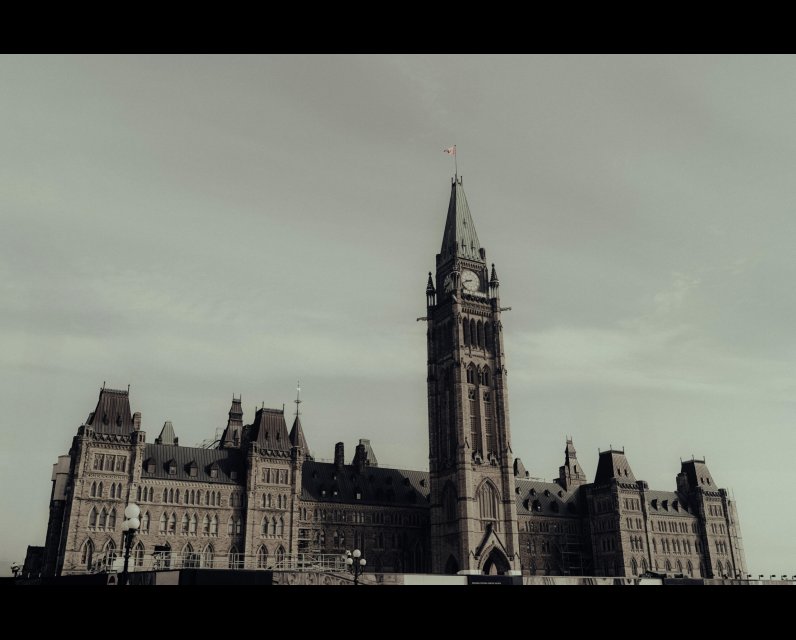Source Feed: Walrus
Author: David Moscrop
Publication Date: May 5, 2025 - 14:30
How Long Can This Parliament Last?
May 5, 2025

W e’ve officially reached the stage where, the election being over, we start to wonder how long the parliament it returned will last. If you’re a certain type of Conservative, you might be hoping and/or betting it won’t be so long, so that your side can have a shot at forming government. But I suspect most Canadians—the writer of this piece included—and even many Conservatives are hoping for a longer run. I can’t imagine many of us are keen to jump into another election soon, nor can I imagine that being productive for the country. We need to immediately confront major overlapping and intersecting challenges, including Donald Trump and tariffs, affordability, a not-so-hot economy and the threat of recession, climate change (still a thing), and lots more. So this parliament could go long.
A lot depends on what you mean by “long,” of course. The last parliament was a minority, and it had a record-setting run of roughly three and a half years—which took it close to the length of most majority parliaments. In most cases, a House of Commons in which no party has a majority of seats lasts about a year and a half. Canada’s thirty-first parliament, which ran from October of 1979 to December of that same year, lasted sixty-six days. Three and a half years is long. Two months is short. For our purposes, let’s call “long” anything that runs more than two years.
I think we’re safe to say the current parliament, Canada’s forty-fifth, will run longer than sixty-six days but will end up shorter than the forty-fourth. This is Canada’s third minority parliament in a row—and its sixth from the past eight elections. We’re getting the hang of them. Barring events of the sort that brought the Liberals back from the brink of devastation mere months ago, the ocean looks if not placid then at least safe enough to sail, and we’re all stuck in the damned ship.
With 169 seats, the Liberals need only three members of Parliament from other parties to win a vote, including votes of confidence that, if they were to lose, would bring them down. Should the government lose a confidence vote within six months or so, it’s likely the governor general would ask the Conservatives to try to form a government and have a go at running the country. Should that scenario come to pass, it’s far from sure the Conservatives could manage. But it doesn’t look like anyone is going to try to bring down the Liberal government anytime soon. Moreover, Prime Minister Mark Carney doesn’t seem the sort to walk his ministry into a firing squad for sport—which is to say, he’ll bargain to keep the government up and running.
For their part, the opposition parties aren’t exactly in shape for another election. When the election dust settled, the New Democratic Party was left with its worst showing of all time: seven seats. That’s enough for it to co-operate with the Liberals on an agenda and keep the government afloat—which means the party has some relevance in the current parliament, but they’re a rump, and a broke one at that. They don’t have money. They don’t even have a leader. Jagmeet Singh announced on election night he’d be stepping down after an interim chief is named. The NDP simply isn’t ready for another election. And everybody knows it. The Greens have one seat.
The Bloc Québécois lost seats off their 2021 outing, dropping to twenty-three. They’ve signalled their intent to co-operate with the government in exchange of concessions. They’re unlikely to want another election either, especially if they can extract policies from the federal government. The Bloc, after all, won’t ever win an election nationally. They can only improve their fortunes in Quebec, or not. So with the balance of power in a minority parliament, they have every reason to co-operate, assuming Carney and the Liberals can work with them when there are reasonable offerings to give.
The Conservatives are . . . sorting out their affairs. This election, they ended up with their best showing since 1988—in the popular vote. The trouble is, on its own, the popular vote doesn’t matter. What matters is where that vote delivers seats. For the Tories, a 41 percent share of the vote won them 144 seats, a twenty-four-seat jump. Good. Not good enough. There are now questions as to whether leader Pierre Poilievre, who lost his own seat on election night, can hold on to his leadership. I think he can, but it will take some time for the struggle over his future to settle down. He also needs a seat in the House of Commons. Poilievre cannot lead the party as the leader of the official opposition from outside the House, since that’s a parliamentary role. On Friday, he announced he would run in a by-election after Damien Kurek, who won the seat on Monday, shared that he was stepping down in Alberta’s Battle River—Crowfoot riding to make way for the leader.
Perhaps most importantly of all, no party is going to want to risk wearing the blame for an early election that voters will almost certainly not want. I’m willing to bet my Lego collection (value: more than my pension, which is admittedly not saying much) that Canadians won’t tolerate another snap trip to the polls and will severely punish whichever party forces one (or is perceived to have forced one). We want our elected politicians to solve the many problems we’ve sent them to Ottawa to solve. Their job is to sort out how to do that, and we expect them to do that job.
Perhaps eighteen months from now, things will change, but I’m banking on a run closer to two years, perhaps a bit longer. In that time, the government, and the parliament to which it is responsible, can get a lot done—especially if it is committed to co-operating with other parties. That approach is in its interests and in the interests of Canadians. The 2025 election was interesting. It was consequential. At times, it was fun. But let’s not do it again—at least just not yet.
Adapted from “How Long Will This Parliament Last?” by David Moscrop (Substack). Reprinted with permission of the author.The post How Long Can This Parliament Last? first appeared on The Walrus.
Despite the ongoing trade war, U.S. President Donald Trump and Prime Minister Mark Carney appeared to get along well during their first face-to-face meeting at the White House.
May 7, 2025 - 13:00 | Amy Judd | Global News - Canada
Ottawa police fraud squad detectives have arrested two people who posed as "bank fraud inspectors" in a series of recent incidents, Read More
May 7, 2025 - 12:50 | Norman Provencher | Ottawa Citizen
Ontario Health Minister Sylvia Jones says the government’s strategy in handling measles outbreaks across the province is working as national cases rise to the highest levels in almost three decades.Ontario, which clocked in more than 1,200 measles cases last week, has not given a dedicated news conference on the issue, unlike Alberta and Nova Scotia. Interviews with Ontario’s Chief Medical Officer of Health Kieran Moore have been sporadic and he has not appeared alongside Ms. Jones to speak publicly on the issue.
May 7, 2025 - 12:47 | Laura Stone | The Globe and Mail



Comments
Be the first to comment